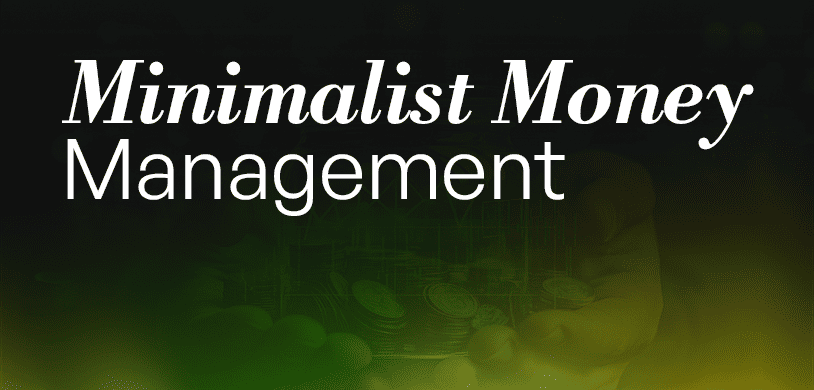Living with less doesn’t mean sacrificing the things you love. In fact, a minimalist approach to managing your finances can open the door to greater fulfillment by helping you focus on what truly matters. When you embrace the idea of spending deliberately rather than impulsively, you start to see money as a tool for achieving your goals rather than a source of stress or constraint. Below, we’ll explore how minimalist money management can free up resources, reduce anxiety, and lead to a richer life—even with fewer “extras” on the table.
Rethinking Needs vs. Wants
One of the fundamental pillars of minimalism is distinguishing between needs and wants. It sounds straightforward: food, shelter, and clothing are needs, while fancy gadgets or another subscription service might be wants. But when daily life moves at lightning speed, it’s easy to blend the two. Take a moment to ask yourself: Is this purchase going to fulfill a genuine need or just a fleeting desire? A quick mental pause before tapping “buy now” can save you more money than you’d imagine.
Minimalist finance doesn’t demand you live in austerity. It simply invites you to question each expense and ensure it aligns with your priorities. If you absolutely love coffee, you don’t have to stop treating yourself—but maybe you can skip that second latte if it’s just a boredom-driven habit. Over time, these mindful decisions help you reclaim control of your budget.
Simplifying Your Financial Landscape
A cluttered financial life can be as overwhelming as a cluttered home. You might be juggling multiple credit cards, various bank accounts, or old subscriptions you forgot to cancel. This scattered setup makes it harder to see where your money is going and can lead to unnecessary fees or missed payments. A minimalist strategy encourages you to streamline: consolidate accounts, reduce the number of cards you carry, and audit those streaming services to see what you really use.
Setting aside a day to comb through old bank statements and credit card bills might not sound thrilling. But the short-term effort can pay off in spades. You’ll likely spot hidden drains on your finances—like a gym membership that’s never used or a premium cable package you haven’t touched in months. Canceling or downgrading these immediately frees up money you can channel into a savings account or an emergency fund.
Budgeting with Intention
Budgets sometimes get a bad rap for feeling restrictive or tedious. However, with a minimalist approach, your budget is less about cutting out everything “fun” and more about making intentional choices. Maybe you value travel experiences over fancy electronics, or you prioritize a comfortable home rather than weekly dining out. In a minimalist budget, you allocate more money to the things that matter deeply and less to the non-essentials that don’t bring long-term satisfaction.
It helps to break your budget into clear categories—like housing, food, transportation, and entertainment—then set realistic monthly limits. Keep these numbers visible on your phone or a slip of paper in your wallet. Each purchase should be a conscious decision: is this expense in line with my monthly plan, or is it a spontaneous move I’ll regret later? Over time, you’ll notice that the habit of checking in with your budget before spending becomes second nature.
Finding Joy in Experiences Over Possessions
One major benefit of minimalist money management is discovering that happiness doesn’t always spring from material goods. Think about your most cherished memories—chances are they center on experiences, not stuff. By refocusing your resources on activities that bring genuine enjoyment—like a day trip with friends, a cooking class, or a special night out—you create lasting value rather than fleeting excitement.
Cutting back on impulse buys or trendy gadgets also reduces clutter and decision fatigue. You’ll have fewer items to maintain and more time and money to pour into hobbies, travel, or simply enjoying life’s simpler pleasures. This shift can change how you view success: less about accumulating and more about truly living.
Building a Cushion for the Unexpected
Living with less leaves more room to handle emergencies without panic. When you scale back on unnecessary spending, you free up funds to bolster your savings or invest in your future. A minimalist mindset positions you to grow an emergency fund—ideally three to six months’ worth of living expenses—making sudden car repairs or medical bills much less stressful.
If you’re interested in investing, channeling your leftover funds into index funds or other stable investments can lay the foundation for long-term financial well-being. The magic lies in consistency: even modest amounts, when set aside regularly, compound over time.
Maintaining the Minimalist Mentality
Minimalist money management isn’t a one-off event; it’s a daily practice of living with intention and honesty about what you truly need. It may take time to break old habits, especially if you’re used to spur-of-the-moment shopping. But the more you resist the pull of unnecessary purchases, the clearer your real priorities become. Over time, the urge to splurge on trivial items fades, replaced by a sense of calm, clarity, and empowerment over your finances.
Make no mistake—minimalism isn’t about deprivation or frugality for frugality’s sake. It’s about clearing space in your life (and budget) so you can focus on what matters most. Each mindful decision contributes to a lifestyle that feels richer yet simpler, where your money consistently works in service of your happiness and security.
Conclusion
Minimalist money management is both a philosophy and a toolkit. By identifying wants vs. needs, trimming financial clutter, budgeting with intent, prioritizing experiences, and building an emergency cushion, you create a life with less financial stress and more genuine fulfillment. The best part? You decide the pace. Whether you eliminate one unnecessary expense a week or overhaul your budget entirely, every step toward simplicity counts. Ultimately, the goal is to reshape your finances to reflect the life you truly want, rather than one that’s dictated by consumer trends or impulses.








